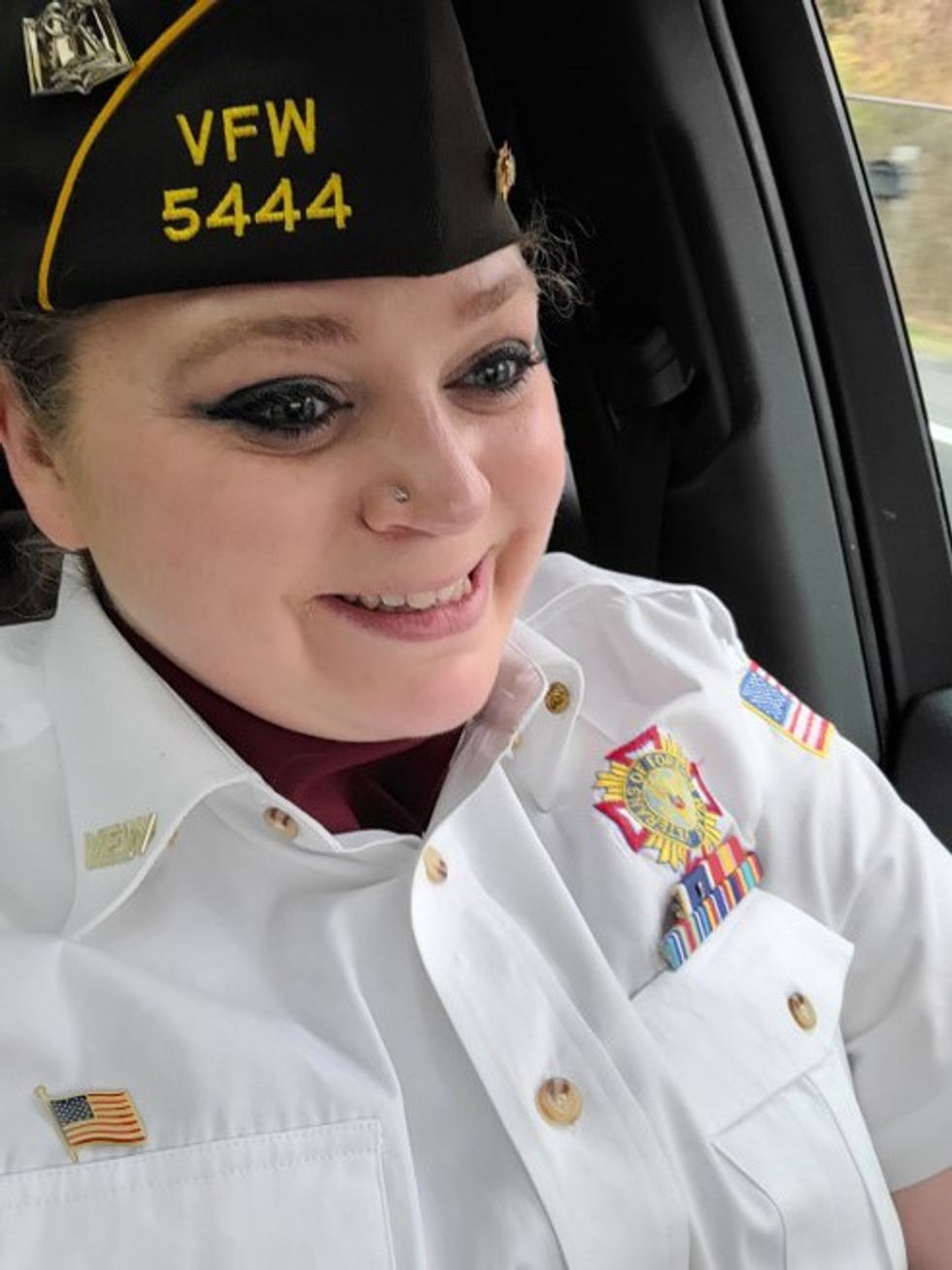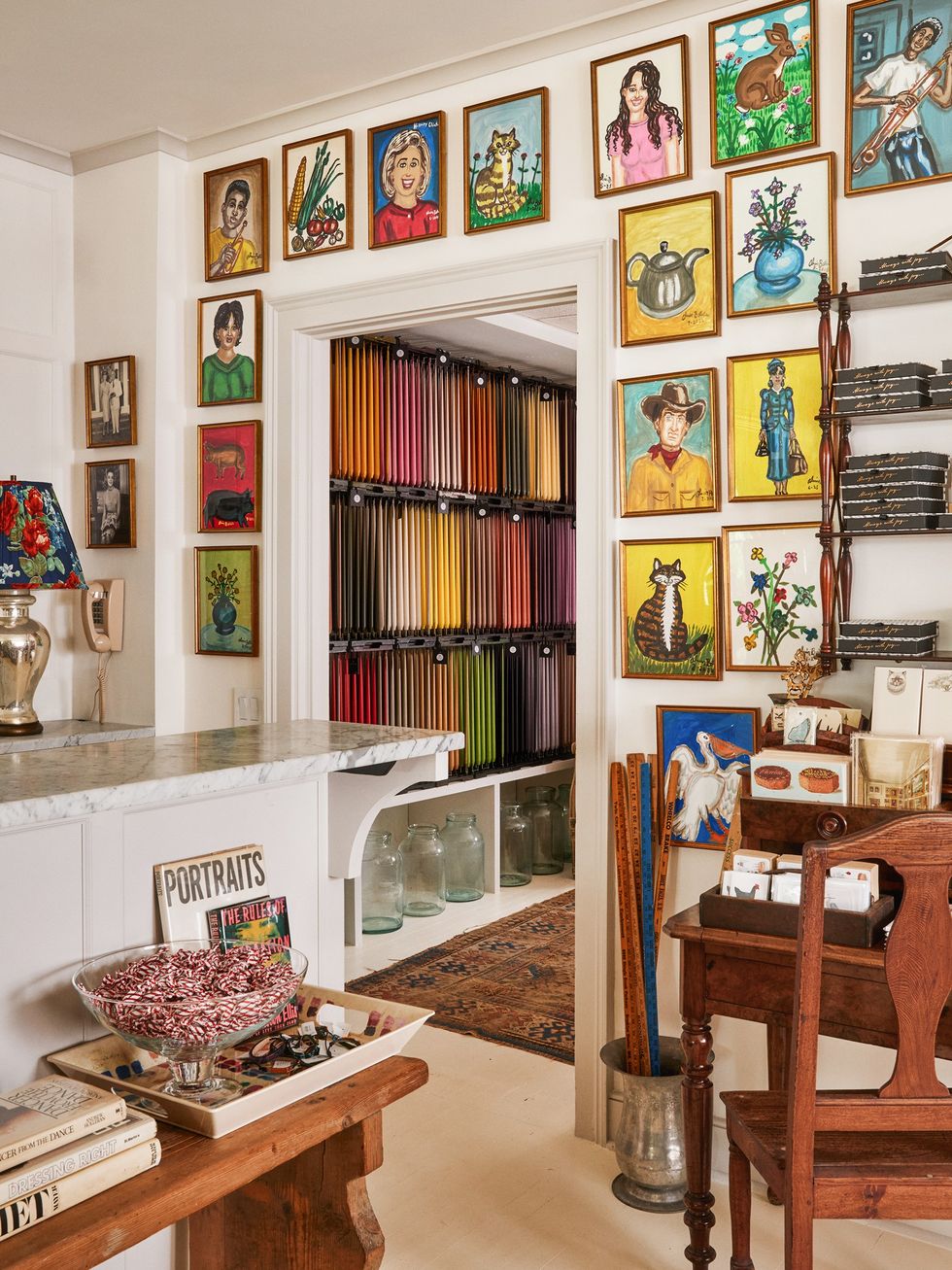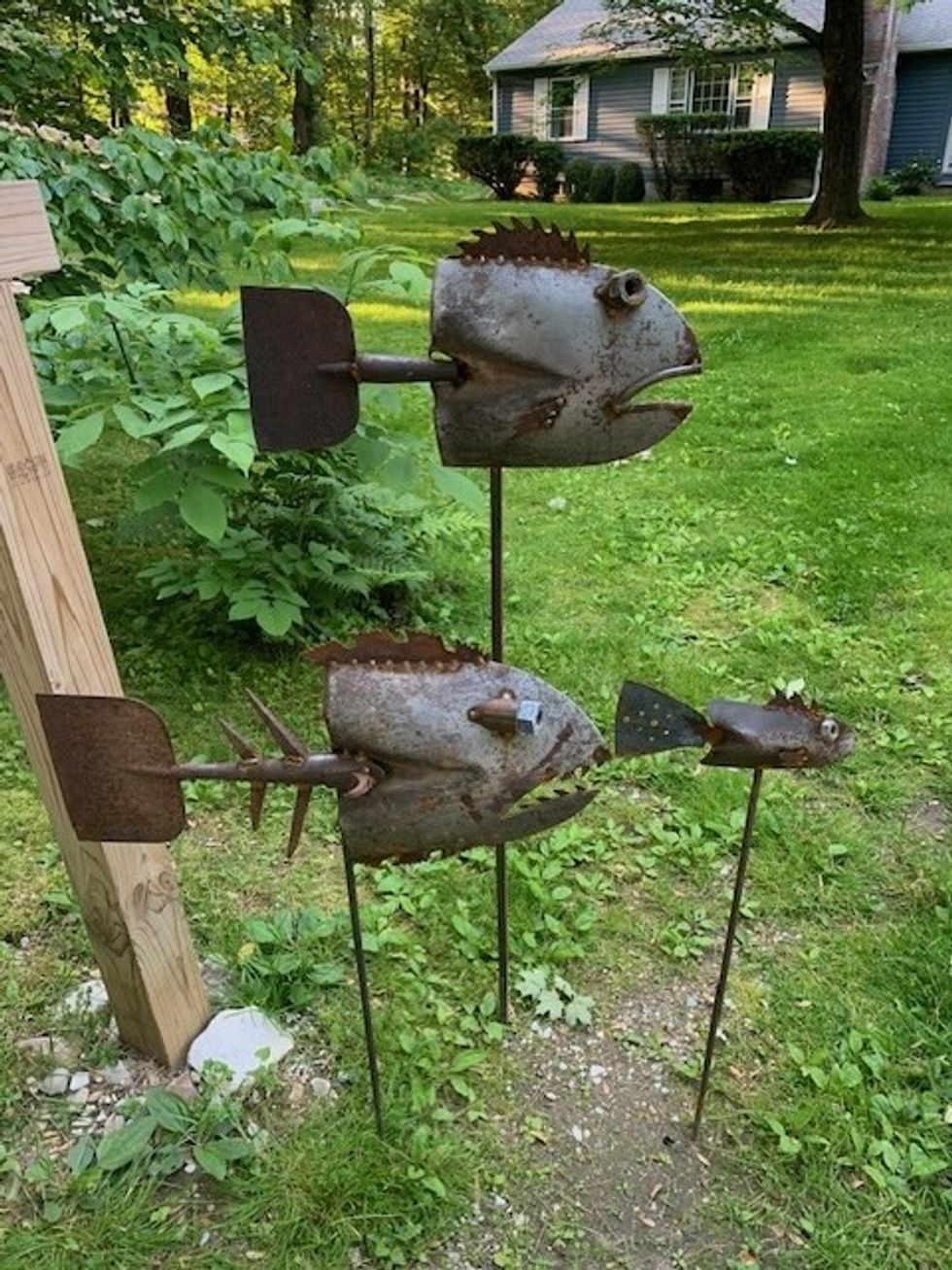Maddie Fletcher is Dover VFW’s first female commander

VFW Post Cmdr.-Elect Maddie Fletcher Photo submitted

DOVER PLAINS — For the very first time in its 42-year history, a woman has been elected — with a unanimous vote — to lead the overwhelming male membership of the Veterans of Foreign Wars (VFW) Post 5444 in Dover as its next post commander. The official vote was held on Thursday, April 1, at the Post home on Route 22.
Fletcher, who is 34 and has been on the VFW’s roster for six years but an active member for only three, said she is “still kind of processing” what the promotion symbolizes.
Already having broken one record last year when she became the Post’s first female senior vice commander, Fletcher was nominated last month by Tod Humeston, a male member whom she described fondly as “one of the most rough and tough people” at Post 5444.
“And it was really funny,” she recalled, “because when they asked for nominations, I was a bit intimidated. Tod just yelled my name from behind me. I knew he was going to be my senior vice right then.”
In fact, she said despite Post 5444 being predominately male, with the military membership of 89 including only two females — including Fletcher — and the between 20 to 30 member Auxiliary being entirely female, Fletcher said she’s received an inordinate amount of support from both groups at Post 5444.
“When I came out of the room [that] night after the vote, I had a ton of people there to support me and cheer, and one of the people who came around, he gave me a little plaque that says ‘Girl Boss’ on it,” she said. “It’s nice to get that kind of reception. I still haven’t really processed the whole idea, but I think it’s good. I think it is a powerful thing in a way, to be an example for other females.”
Fletcher, who was born in New Milford, Conn., and raised in Brewster, moved to Dover when she was 13 and graduated from Dover High School. She served in the Navy aboard the U.S.S. Waft out of Norfolk, Va., for four years as a 3rd Class Cook CS3.
She also graduated from the Culinary Institute of America (CIA) in Hyde Park and has worked in 4-star restaurants but has since shifted gears and is now pursuing a teaching career; she will graduate from Dutchess Community College this semester and then transfer to either Marist College or West Conn.
In the meantime, Fletcher also bartends part-time at Post 5444, where she said she gets to hear all of the veterans share their war stories — a privilege and honor she treasures.
Mom to a 9-year-old daughter, Brooklyn, and 26-year-old step-daughter, Devanie, Fletcher said she and her husband decided to return to Dover to be close to her family, as her husband’s family is in Jamaica, too far away to consider living there.
The promotion will become effective on Thursday, May 6, when she takes her oath of office. It can set an important example — especially for Brooklyn — who is just learning that women earn less for doing the same work as men and often have less rights than their male counterparts, said Fletcher.
“I think it is great to be a role model for her, and for her to have someone to look up to who wants to help other veterans,” she said, noting she helps council other veterans struggling after returning from combat and works with the national Alliance for Mental Illness (NAMI) through its peer to peer classes. Fletcher also volunteers with the Homefront Program for friends and families of veterans and is a member of Student Veterans of America; she plans to speak to Congress in October about veteran issues on their behalf.
When asked what she would say to her daughter specifically about the historical significance of her promotion, Fletcher paused for a moment.
“I would say that we don’t have to limit ourselves, that we can push for the sky and there are no limitations on what we can do,” she said.
When asked if she ever encountered sexism when in the military, her response came much more quickly.
“One-hundred percent,” said the commander-elect. “When I first got in the military, having females on ships was a new thing. I entered the military in 2004; when I was in, we still weren’t allowed on submarines.”
Women weren’t admitted to the VFW for some time, either. In fact, according to the organization’s national website, www.vfw.org, “While female World War I nurses began qualifying for [VFW] membership in 1921 following the war, it wasn’t until 1978 that women were formally admitted to the VFW.”
The VFW goes back to 1899, “when veterans of the Spanish-American War [1898] and the Philippine Insurrection [1899-1902] founded local organizations to secure rights and benefits for their service. Many arrived home wounded or sick. There was no medical care or veterans’ pension for them, and they were left to care for themselves,” stated the website.
There are more than 1.5 million members of the both VFW and its Auxiliary today, it added.
The VFW and its Auxiliary advocate for many veteran issues; they helped pass the Veterans Access and Accountability Act of 2014 and continue to fight for improved conditions and services for men and women at VA medical centers.
The best part of her new command, said Fletcher, is continuing to promote Post 5444 — a place where she’s consistently found support — no matter her gender, no matter her young age (at 34 she’s one of the youngest veterans, if not the youngest, to ever take charge in Post 5444’s history) and no matter her title.
“The VFW, to me, is a place where veterans can go and find home,” said Fletcher, asking readers to be on the lookout for events and fundraisers in the near future to help back the organization. “We’re a program that supports veterans and supports our community, not only the veteran community but the community in general.”
To read our thoughts on Fletcher’s historic journey, turn to this week’s Opinion Page, Page B4.
In light of rising local interest in the centuries-old game of Backgammon, Wednesday afternoon backgammon instruction and play sessions are being offered at The Hotchkiss Library of Sharon. The first such session was held on Wednesday, Aug. 13, attracting two enthusiastic participants, both of whom resolved to return for the weekly sessions.
Expert player and instructor Roger Lourie of Sharon, along with his equally expert wife, Claude, led the session, jumping right into the action of playing the game. Claude chose to pair with Janet Kaufman of Salisbury, a moderately experienced player looking to improve her skills, while Lourie teamed himself with Pam Jarvis of Sharon, who was new to the game.
In 2023, Lourie formed Backgammon of Northwestern Connecticut with two objectives: to promote the game in the northwest corner of the state and to teach it to children and adults interested in learning. In addition to the Wednesday sessions at The Hotchkiss Library, an informal, casual group meets at Le Gamin in Sharon every Saturday morning from 9 a.m. to noon.
Acting as co-chairman is Ed Corey who leads the Le Gamin sessions, offering advice and instruction. Both Corey and Lourie play competitively and have distinguished themselves by winning tournaments. There are no fees for participation at either Hotchkiss or Le Gamin. Children, ages 8 and up, are welcome to come and learn the game, along with adults of any experience level.
Lourie says that he can teach a person to play competitively in three lessons.
Sessions at The Hotchkiss Library will continue until the end of the year and perhaps beyond, depending on interest. Lourie will be the instructor until mid-November, when expert player Ed Corey will assume responsibility for the sessions at the Hotchkiss Library.
“We’re hoping for more people and also to see youngsters participating and learning the game,” Lourie said.
“The beginner can be the expert with the right dice,” said Lourie, explaining that it is a game combining chance and strategy. An understanding of mathematics and probability can be helpful.
Lourie summarized the randomness of dice and the strategy of poker. “I want to know the proper etiquette,” Kaufman offered, intent on knowing more about the proper moves, although her play indicated a credible level of skill.
Stopping in to observe the Hotchkiss session, executive director of the library, Gretchen Hachmeister said, “We know that people come to library game sessions. People love games, getting together to learn something new.”
Lourie learned the game under extremely unusual circumstances — as a detainee in a Soviet prison during the1960s missile crisis, while working in Naval Engineering to decipher code for the U.S. Office of Technological Security.
Imprisonment was not terrible, he said. There was predictable questioning by day when he repeated daily the details of his cover story. But at night, the guards — many the same age as the detainees — had finished their shifts and of interrogation.They unplugged the cameras to brew tea and the backgammon games would begin. That was how Lourie learned the game and became an expert.
Board games date back 5,000 years to ancient Mesopotamia. Modern backgammon goes back to 17th-century England, having evolved from a 16th-century game called “Irish.”It grew in popularity in the 1960s, leading to formation of a World Backgammon Club in Manhattan. And then in 2023, Backgammon of Northwestern Connecticut came to be.
To learn more about the Backgammon sessions at The Hotchkiss Library, visit: www.hotchkisslibraryofsharon.org or contact Lourie directly at Rlourie@gmail.com.
Pantry essentials at Dugazon
You are invited to celebrate the opening of Dugazon, a home and lifestyle shop located in a clapboard cottage at 19 West Main Street, the former site of The Edward in Sharon. The opening is Wednesday, Aug. 27 at 11 a.m.
After careers in the world of fashion, Salisbury residents Bobby Graham and his husband, Matt Marden, have curated a collection of beautiful items that reflect their sense of design, love of hospitality, and Graham’s deep Southern roots. Dugazon is his maternal family name.
“My Louisiana roots come from my mother’s family in Baton Rouge via New Orleans where many of my memories of cooking, food, antiquing, flea markets, hospitality, entertaining, originate,” Graham said.“Being raised in Sioux Falls, South Dakota, enhanced the importance of community, family, friends and regional cultures, forming the essence of Dugazon.”
Graham and Marden sat on the front porch telling the story of their shop’s evolution. With its wicker loveseats and geraniums in bloom, the old porch invites visitors to linger.

“Bobby has been talking about Dugazon ever since our first date 21 years ago,” Marden said smiling. “I could not be more thrilled that his dream has finally become our reality.”
Graham laughed, then shared their hope that Dugazon embodies the spirit of lagniappe, a French concept of “adding a little extra to bring unexpected kindness, generosity and delight into everyday life.”
Marden worked at Staley-Wise Gallery in New York City. “Town & Country” recruited him to cover men’s fashion. He became fashion director of “Details” magazine and later style director for “Esquire” magazine.
Graham spent 24 years at Condé Nast as a Fashion and luxury advertising sales executive for “Vogue,” “GQ,” “Vanity Fair,” “AD,” and “The New Yorker.”
Within their light-filled shop, unique antiques and vintage cookbooks mix with kitchen necessities such as wooden spoons and cutting boards. Dugazon is bursting with elegant and functional items ranging from designer John Derian treasures to Louisiana hot sauce, luxurious table linens from Milan-based La Double J, and pantry essentials including Café Du Monde beignet mix, Mam Papaul’s jambalaya fixings, and various jams.
Scandinavian 19-inch tapered candles from creators ester & erik are available in 30 colors. Other offerings include vivid naïve paintings by New Orleans-born artist Alvin Batiste, who now works out of Donaldsonville, Louisiana, and paper goods designed by Marden’s first cousin, Carey Marden Shaulus.

“Dugazon becoming a reality has been a lifelong dream that comes from deep in my creative soul,” Graham said.“My experiences and memories from my roots, family and friends is what Dugazon is all about. Being able to share this with the world means everything to us.”
Dugazon opens Wednesday, Aug. 27 at 11 a.m.and will be open Wednesdays through Sundays 11 a.m. to 5 p.m. Closed Mondays and Tuesdays.
Phone: 860-397-5196
Instagram:@dugazonshop
Website:www.dugazonshop.com
A giant fish that sold at Trade Secrets, the high-end home and garden show held at Lime Rock Park, is just one of the creatures that Matt Wabrek of Birch Lane Rustics in North Canaan, creates by welding old tools and pieces of metal together.
The fish was so well liked by browsers at Trade Secrets that he received commissions for others.
Besides the satisfaction he gets in making his pieces, Wabrek said, “I really like to see people happy and enjoying themselves. It brings people happiness to see something they like and might want to buy.”
Wabrek did structural ironwork for 25 years, working up and down the East Coast from Arlington, Virginia, to South Station in Boston.He recalls putting up a truss over the train track in Boston.
But in the back of his mind, he always had the thought of using his welding skills for other purposes.
A few years ago, when a cherry tree fell in his yard, he didn’t want the wood to go to waste. Using both his woodworking and welding skills, he milled the wood and then made metal legs for a table.From what was left, he made several charcuterie boards.
From that beginning, he went on to make sculptures, welding together creations to inhabit both garden and home. He uses old shovels, hoes, picks, hammers, wrenches, horseshoes, rakes and pieces of metal he finds at tag sales, junk shops, estate sales and the local landfill to craft his whimsical creatures.

He gets ideas from looking at each old piece of metal.
“Teeth from a sickle bar? I see a bird’s beak,” he said, pointing to the piece.Lifting a hinge from a neat pile in his studio, he said, “These will be dragonflies.”
He still makes tables with welded metal legs that are sculptural in themselves.His studio holds saws, shovels, and propane tanks with silhouettes of trees and other shapes cut into them — plasma cut from his own designs.
In addition, Wabrek makes chairs from old skis, recalling his days as a ski instructor.
“I like to make things, whether it’s a garden fence or whatever.I must have a creative bone somewhere,” he mused.
He recently began a new interest: making spheres. A completed one, made of old wrenches, has a temporary place in his yard, along with fish of varying shapes and sizes, jelly fish, crabs, dogs, snails, and many kinds of birds — including a woodpecker that perches on the side of a building, and long-legged cranes.
Wabrek is happy to make any of his creations on commission. He is currently working on a support for an old tree that he will craft from metal.
Birch Lane Rustics will be at arts and crafts shows and pop-up sales in the area in the coming months. To find out where or ask about sales or commissions email mcwlu15@gmail.com or call/text 860-248-9004.